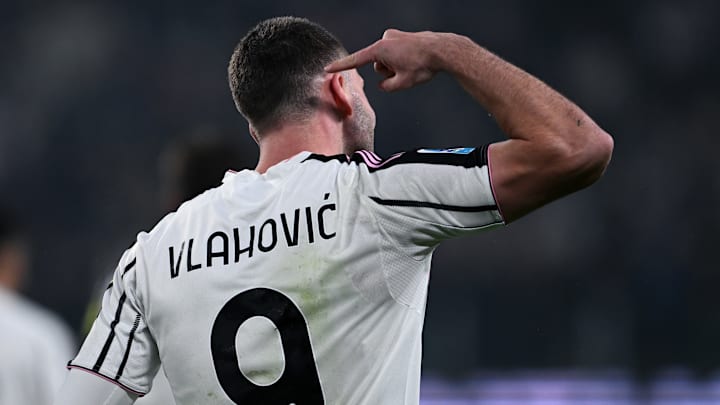Tottenham is preparing to take a major step toward signing Serbian Dušan Vlahovic, currently at Juventus, in the upcoming winter transfer window. The English press has revealed that Spurs considers the arrival of a striker with more talent for scoring regularly a necessary priority, especially since the names currently being used, such as Solanke and Richarlison, have not performed at the expected level.
Vlahovic emerges as a credible target: at 25, he has the physical and technical attributes that Spurs consider conducive to the demands of the Premier League. For the player, the move would represent an opportunity to revitalize his career, regain his best form, and finally get the chance to compete for titles.
However, despite mutual desire, the path to closing the deal involves significant challenges: it is necessary to reach an agreement with Juventus, settle salary issues, and ensure that the player will get enough playing time to justify the move. Therefore, although Tottenham is "ready to move forward," the success of the operation is not yet assured.
Understand how Vlahovic played with Igor Tudor at Juventus
Luciano Spalletti will soon take charge of Juventus, but it is worth noting how Vlahovic was performing under the previous coaching staff. With the arrival of Igor Tudor, the team was alternating between systems such as 3-5-2 or 3-4-2-1, with a three-man defense, supporting midfielders, and wingers who transitioned between offense and defense.
In attack, Vlahović played alongside other players who compete for space or take on different roles, such as Jonathan David (signed in 2025) and Nicolás González, forcing the Serbian to adapt his role. The player mainly played as a center forward, being the central target of Juventus' offensive plays: he occupies the center of the area, receives long or vertical balls, competes in aerial duels, and serves as a bridge/fixer for opposing defenses to create space for others.
It was used extensively with the aim of "holding back" opposing center backs, opening up passing lanes for late-running midfielders or infiltrating wingers; this helps Juventus to have more offensive options without losing momentum.
